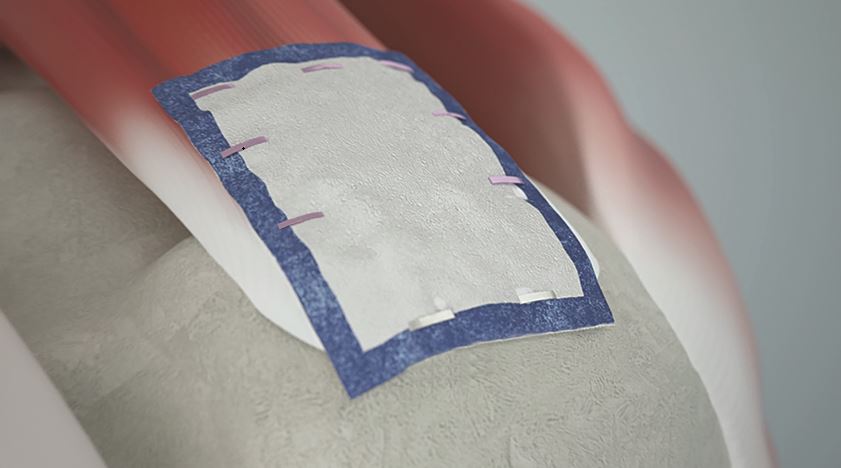
Smith+Nephew has revealed positive data from a new randomised controlled trial that evaluated the use of its Regeneten bioinductive implant in the repair of rotator cuff tear (RCT).
The multicentre, triple-blinded study assessed re-tear rates of patients having medium to large full-thickness tears after being subject to arthroscopic supraspinatus transosseous equivalent (TOE) repair only or the same TOE repair plus a Regeneten implant.
In the trial, the addition of Regeneten delivered a reduction of 86% in rotator cuff re-tear rates at 12 months, said the UK-based medical equipment maker.
Patients who received a Regeneten bioinductive implant had a 3.5% re-tear rate, as per the results of the trial.
Those who were subject to a transosseous equivalent repair showed a 25% re-tear rate, which is consistent with rates that were previously reported for similar tear types.
Smith+Nephew said that the trial witnessed no difference in postoperative complications between the two patient groups.
Miguel Angel Ruiz-Ibán from Hospital Universitario Ramon Y Cajal, Madrid, Spain presented the results of the trial at this year’s SECEC-ESSE Congress event in Dublin, Ireland.
Ruiz-Ibán said: “Traditional rotator cuff procedures and the resulting re-tear rates present a challenge and a concern for both surgeons and patients alike.
“The interim results from this RCT are encouraging and indicate that the Smith+Nephew REGENETEN Bioinductive Implant may significantly improve re-tear rates.
“I look forward to the completion of this investigation in 2023 and further use of the implant.”
The Regeneten implant is part of Smith+Nephew’s Advanced Healing Solutions portfolio. The implant is said to support the natural healing response of the body to facilitate the growth of new tendon-like tissues and disrupt the progression of the disease.
Smith+Nephew sports medicine joint repair VP Christie Van Geffen said: “New RCT evidence supporting the use of our REGENETEN Bioinductive Implant for improved patient outcomes continues to grow.
“No other bioinductive treatment has the amount of science behind it supporting the clinical value for thousands of patients with rotator cuff tears.”






